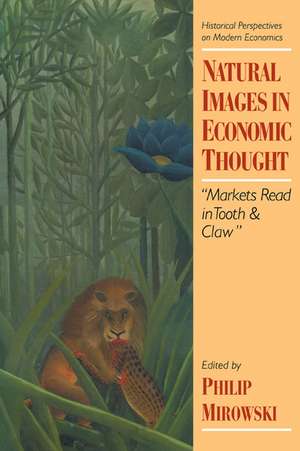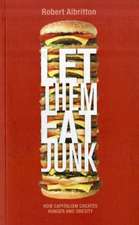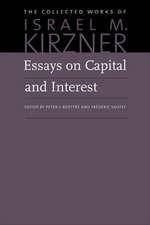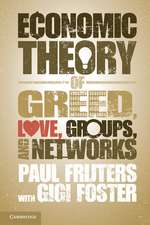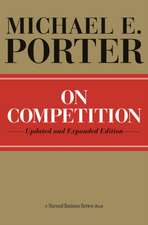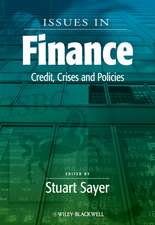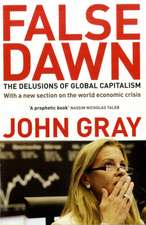Natural Images in Economic Thought: Markets Read in Tooth and Claw: Historical Perspectives on Modern Economics
Editat de Philip Mirowskien Limba Engleză Paperback – 28 iul 1994
| Toate formatele și edițiile | Preț | Express |
|---|---|---|
| Paperback (1) | 355.54 lei 6-8 săpt. | |
| Cambridge University Press – 28 iul 1994 | 355.54 lei 6-8 săpt. | |
| Hardback (1) | 1259.95 lei 6-8 săpt. | |
| Cambridge University Press – 28 iul 1994 | 1259.95 lei 6-8 săpt. |
Din seria Historical Perspectives on Modern Economics
-
 Preț: 200.08 lei
Preț: 200.08 lei -
 Preț: 277.57 lei
Preț: 277.57 lei -
 Preț: 307.58 lei
Preț: 307.58 lei - 11%
 Preț: 536.98 lei
Preț: 536.98 lei -
 Preț: 288.62 lei
Preț: 288.62 lei -
 Preț: 277.65 lei
Preț: 277.65 lei -
 Preț: 350.91 lei
Preț: 350.91 lei -
 Preț: 430.14 lei
Preț: 430.14 lei -
 Preț: 289.19 lei
Preț: 289.19 lei -
 Preț: 321.90 lei
Preț: 321.90 lei -
 Preț: 441.58 lei
Preț: 441.58 lei -
 Preț: 400.76 lei
Preț: 400.76 lei -
 Preț: 323.27 lei
Preț: 323.27 lei - 11%
 Preț: 577.27 lei
Preț: 577.27 lei -
 Preț: 331.09 lei
Preț: 331.09 lei -
 Preț: 357.37 lei
Preț: 357.37 lei -
 Preț: 395.17 lei
Preț: 395.17 lei -
 Preț: 286.69 lei
Preț: 286.69 lei - 14%
 Preț: 787.78 lei
Preț: 787.78 lei -
 Preț: 364.08 lei
Preț: 364.08 lei -
 Preț: 357.91 lei
Preț: 357.91 lei -
 Preț: 259.95 lei
Preț: 259.95 lei -
 Preț: 272.75 lei
Preț: 272.75 lei -
 Preț: 442.22 lei
Preț: 442.22 lei -
 Preț: 414.74 lei
Preț: 414.74 lei - 14%
 Preț: 728.05 lei
Preț: 728.05 lei -
 Preț: 266.98 lei
Preț: 266.98 lei -
 Preț: 392.82 lei
Preț: 392.82 lei -
 Preț: 309.49 lei
Preț: 309.49 lei -
 Preț: 349.38 lei
Preț: 349.38 lei
Preț: 355.54 lei
Nou
Puncte Express: 533
Preț estimativ în valută:
68.04€ • 70.29$ • 56.63£
68.04€ • 70.29$ • 56.63£
Carte tipărită la comandă
Livrare economică 26 martie-09 aprilie
Preluare comenzi: 021 569.72.76
Specificații
ISBN-13: 9780521478847
ISBN-10: 0521478847
Pagini: 636
Ilustrații: 10 b/w illus.
Dimensiuni: 151 x 227 x 41 mm
Greutate: 0.87 kg
Ediția:New.
Editura: Cambridge University Press
Colecția Cambridge University Press
Seria Historical Perspectives on Modern Economics
Locul publicării:New York, United States
ISBN-10: 0521478847
Pagini: 636
Ilustrații: 10 b/w illus.
Dimensiuni: 151 x 227 x 41 mm
Greutate: 0.87 kg
Ediția:New.
Editura: Cambridge University Press
Colecția Cambridge University Press
Seria Historical Perspectives on Modern Economics
Locul publicării:New York, United States
Cuprins
List of contributors; Acknowledgements; Part I. The Natural and the Social: 1. Doing what comes naturally: four metanarratives on what metaphors are for Philip Mirowski; 2. So what's an economic metaphor? Arjo Klamer and Thomas C. Leonard; Part II. Physical Metaphors and Mathematical Formalization: 3. Newton and the social sciences, with special reference to economics, or, the case of the missing paradigm I. Bernard Cohen; 4. From virtual velocities to economic action: the very slow arrivals of linear programming and locational equilibrium Ivor Grattan-Guinness; 5. Qualitative dynamics in economics and fluid mechanics: a comparison of recent applications Randall Bausor; 6. Rigor and practicality: rival ideals of quantification in nineteenth-century economics Theodore M. Porter; Part III. Uneasy boundaries between man and machine: 7. Economic man, economic machine: images of circulation in the Victorian money market Timothy L. Alborn; 8. The moment of Richard Jennings: the production of Jevons's marginalist economic agent Michael V. White; 9. Economics and evolution: Alfred James Lotka and the economy of nature Sharon E. Kingsland; Part IV. Organic Metaphors and their stimuli: 10. Fire, motion, and productivity: the proto-energetics of nature and economy in François Quesnay Paul P. Christensen; 11. Organism as a metaphor in German economic thought Michael Hutter; 12. The greyhound and the mastiff: Darwinian themes in Mill and Marshall Margaret Schabas; 13. Organization and the division of labor: biological metaphors at work in Alfred Marshall's Principles of Economics, Camille Limoges and Claude Ménard; 14. The role of biological analogies in the theory of the firm Neil B. Niman; 15. Does evolutionary theory give comfort of inspiration to economics? Alexander Rosenberg; 16. Hayek, evolution, and spontaneous order Geoffrey M. Hodgson; Part V. Negotiating over Nature: 17. The realms of the Natural Philip Mirowski; 18. The place of economics in the hierarchy of the sciences: Section F from Whewell to Edgeworth James P. Henderson; 19. The kinds of order in society James Bernard Murphy; 20. Feminist accounting theory as a critique of what's 'natural' in economics David Chioni Moore; Index.
Recenzii
"The book is a good reference for teachers of the history of economic thought or philosophy of economics." The Southern Economic Journal
"...I recommend this volume to anyone interested in a lively debate about the intellectual cross-pollination between the natural and social sciences. Many of the essays are provocative." John C. Moorhouse, Reason Papers
"...I recommend this volume to anyone interested in a lively debate about the intellectual cross-pollination between the natural and social sciences. Many of the essays are provocative." John C. Moorhouse, Reason Papers
Descriere
This 1994 book was the first collection devoted to impact of natural sciences on content and form of economics in history.
